
The Most Important Car Insurance Terms that Every Individual Should Know

When hunting for car insurance, you’ve got to know the lingo that is occasionally tossed around to understand what you’re getting yourself into.
Unfortunately, most people do not take the time to know the car insurance landscape, eventually paying more for insurance than what they had budgeted. Or worse, they might come across an unscrupulous individual posing as a car insurance dealer get duped!
That being said, here are some of the most commonly used car insurance terms that you might come across when looking for your ideal auto insurance.

Knowing certain terms while looking for car insurance will help you make the right decision
Collision coverage
This specific coverage deals with payments regarding any damages made to your vehicle, regardless of who was responsible for the accident. So if you happen to drive a classic, or just recently bought a new car, collision coverage is extremely important.
Additionally, if you finance your car, then collision coverage might just be mandatory in some instances.
Comprehensive coverage
This kind of coverage deals with payments regarding your car that is not caused by any collisions with another car. For example, say you hit a deer on your way to work, then the damaged would be paid for by this coverage.
Similar to collision coverage, if you’ve recently bought a new car, then this coverage is extremely vital.

Most people end up selecting over-the-top car insurance premiums because they are not street smart with the different insurance plans out there
Deductibles
A deductible is money that you pay directly from your own savings when making repairs from an accident before the insurance comes to play. Of note is that the higher the amount of deductible that you have, the lesser the monthly premiums you will pay.
Declarations page
This is a comprehensive summary regarding your coverage. It talks about certain features of the coverage, like the type, the vehicle that it covers, and the total limit of the coverage.
Full Coverage
Before defining this, you’ve got to understand that there is no such thing as ‘full coverage.’ On the other hand, the term full coverage refers to a car insurance policy that has the inclusion of a liability coverage. For instance, the policy might have roadside assistance, uninsured motorist coverage, among many others. Hence, it is considered a full coverage.
Gap Insurance
The best way to define gap insurance is by using an example. As you are by now aware, once you buy a car from a dealership, its value begins depreciating the moment drive out with it. So let’s say your car had a value of $50,000; this figure might drop down to $40,000 in the say, two months. So if you’ve been paying premiums of $1000, you will technically owe $48,000 on a car whose worth now is $40,000.
So in the event that you’re involved in an accident, your insurance policy will only be eligible to fork out $40,000, leaving you with $8000 to address. Even if you won’t be able to drive the vehicle anymore.
That being said Gap Insurance is ideal for individuals who are leasing a car, but if you own a car, then it is not the most ideal insurance cover to consider.

Most insurance premiums are tailored to meet certain specifications from the driver. Knowing what is out there will help you budget accordingly for insurance
Liability Insurance
This refers to the least amount of insurance that your vehicle needs to have. Normally, liability insurance covers injuries and damages to the other party when an accident is as a result of a mistake you made. However, it does not cover any injuries/damages to your vehicle.
That being said, liability insurance is of two types. First is property damage liability which pays for any damage done to the other party’s car, or any property damage during the accident. On the other hand, there is bodily injury liability that covers the other party’s injuries as well as death.
No-fault insurance
No-fault insurance is a type of insurance cover that pits each of the parties in an accident to have their insurance covers pay for any injuries to each policy owner regardless of who caused the accident in the first place. However, this kind of insurance does not cover any property damage that takes place.
This insurance was first created in order to cut back on the number of motorists suing each other even when the injuries that occurred were minor. That being said, if the injuries are severe, then you are expected to pay for the difference that remains after the no fault-insurance cover has been paid.
More inCar Insurance
-
`
How to Save on Tesla Car Insurance Without Compromising Coverage
Owning a Tesla often brings savings on fuel and a futuristic driving experience, but the conversation changes quickly when it comes...
June 26, 2025 -
`
10 Weird Cars That Turned Heads and Won Hearts
Some cars turn heads with speed, others with luxury—but a rare few grab your attention simply by being delightfully strange. From...
June 20, 2025 -
`
Next-Gen Jeep Cherokee Expected to Arrive by Late 2025
After a break of two years, Jeep is prepared to relaunch the Cherokee brand. The automaker confirmed the return with fresh...
June 12, 2025 -
`
9 Tips to Make Night Driving Safer and Less Frightening
Once the sun dips below the horizon, driving becomes more than just a commute—it becomes a challenge. Limited visibility, harsh glares,...
June 6, 2025 -
`
The Impact of AI on Middle Management and Leadership Dynamics
Artificial intelligence is reshaping modern management practices. While intended to streamline tasks like approving time off or managing internal applications, its...
May 31, 2025 -
`
Car Insurance Rates Were Set to Fall—Then Tariffs Changed the Game
For many drivers, there was reason to hope for some relief on car insurance costs this year. After a strong performance...
May 25, 2025 -
`
Tesla Robotaxi Service to Launch Soon – How Will It Affect Tesla Stock?
Tesla’s stock continues to go up as the business gets ready to launch its long-awaited robotaxi service. Scheduled for June in...
May 16, 2025 -
`
How the U.S. Government Plans to Ease Safety Rules for Self-Driving Vehicles
Something subtle but seismic just happened in the world of autonomous vehicles: U.S. regulators quietly peeled back some of the old...
May 9, 2025 -
`
Wedding Photographer Shares Life-Changing Tip for Grooms
Weddings often carry a mix of nerves and excitement, especially for the groom standing moments away from seeing his partner in...
May 2, 2025

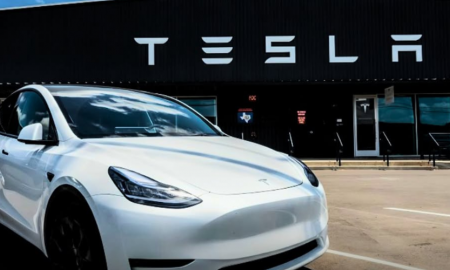

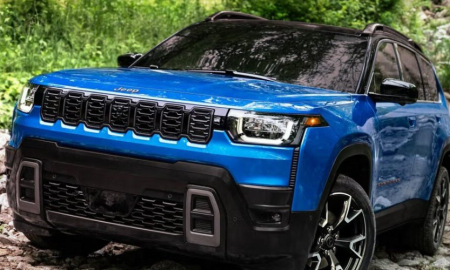




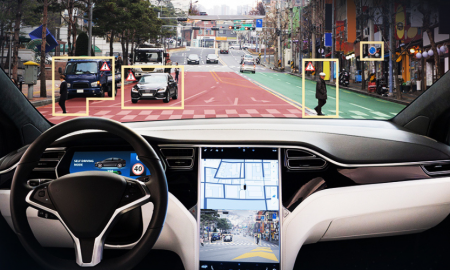



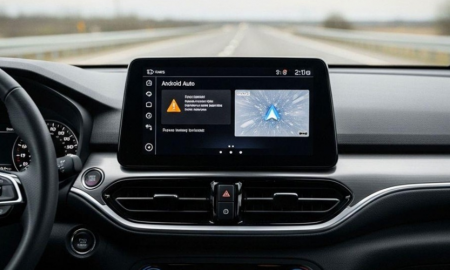
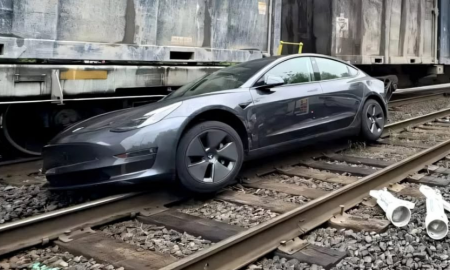

You must be logged in to post a comment Login